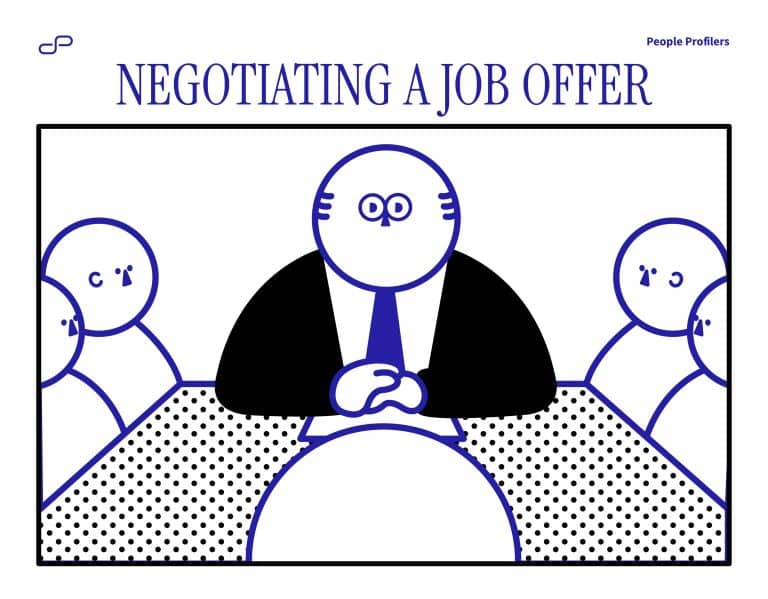
If you’ve been unemployed for some time, unhappy in your current job, or new to the industry, accepting whatever job offer comes your way may seem like the best course of action.
Except, it isn’t.
On the surface, it might look like you have no bargaining power to ask for better terms, but the job market’s complexity means there are always opportunities you can take hold of to negotiate more skilfully.
With job mobility rising, many people vying for the same position come from vastly different backgrounds. They have different strengths and salary histories, making it unwise for employers to standardise salaries and employee benefits across the board if they want to retain talented hires.
Every job offer you receive is unique, but there are effective strategies and tactics you can use to champion what matters most to you when you receive job offers. Here are seven tips to help you negotiate a better job offer with potential employers.
𝗧𝗶𝗽 𝟭: 𝗖𝗼𝗻𝘀𝗶𝗱𝗲𝗿 𝘁𝗵𝗲 𝘄𝗵𝗼𝗹𝗲 𝗷𝗼𝗯 𝗼𝗳𝗳𝗲𝗿
Negotiating a job offer is not just about negotiating a salary. Your job satisfaction will come from more than just getting paid once a month. Consider the job, responsibilities, office location, work culture, job flexibility, prospects, support for continued education, etc. By negotiating suitable advantages for yourself.
𝗧𝗶𝗽 𝟮: 𝗜𝗻𝗰𝗿𝗲𝗮𝘀𝗲 𝘆𝗼𝘂𝗿 𝗹𝗶𝗸𝗲𝗮𝗯𝗶𝗹𝗶𝘁𝘆
Fighting an organisation’s status quo to get you the perks you desire takes more than just saying okay to you. It takes some effort on their part, talking to management, convincing the organisation that you’re worth the cost.
Thus, it would help if you tried to be as likeable as possible. Practice getting interviewed with your friends to understand how others perceive your words. Do you come across as greedy or petty when you negotiate? How can you phrase your intentions better?
𝗧𝗶𝗽 𝟯: 𝗘𝘅𝗽𝗹𝗮𝗶𝗻 𝘄𝗵𝘆 𝘆𝗼𝘂 𝗻𝗲𝗲𝗱 𝘄𝗵𝗮𝘁 𝘆𝗼𝘂’𝗿𝗲 𝗿𝗲𝗾𝘂𝗲𝘀𝘁𝗶𝗻𝗴
But being likeable isn’t enough. You have to make them believe you’re worth the effort. The best way to do that is to tell the story behind your proposal. Why do you deserve a higher salary? Why do you need to work from home once a week?
If you have no justification for a demand, it’s unwise to make it. Avoid coming across as arrogant by giving ‘I’m a valuable asset’ as your reason. Instead, demonstrate in concrete terms or evidence how you’re valuable.
𝗧𝗶𝗽 𝟰: 𝗗𝗼𝗻’𝘁 𝗵𝗶𝗴𝗵𝗹𝗶𝗴𝗵𝘁 𝘁𝗵𝗲 𝗳𝗮𝗰𝘁 𝘁𝗵𝗮𝘁 𝘆𝗼𝘂’𝗿𝗲 𝗶𝗻 𝗵𝗶𝗴𝗵 𝗱𝗲𝗺𝗮𝗻𝗱
Mentioning that you have other offers is okay, but highlighting it too much will make your prospective employer suspect you’ve already got a better offer, and there’s no point in negotiating for you. Make it clear that you’re serious about working for this company.
If you want to mention your other offers as leverage, balance that out by explaining under what conditions you’ll be happy to forgo those options and accept this offer.
𝗧𝗶𝗽 𝟱: 𝗞𝗻𝗼𝘄 𝘄𝗵𝗼 𝘆𝗼𝘂𝗿 𝗶𝗻𝘁𝗲𝗿𝘃𝗶𝗲𝘄𝗲𝗿 𝗶𝘀
An HR manager hiring more than ten people at once might be more reluctant to break precedent for you than your future boss or manager, who will benefit directly from getting you hired. That said, HR is less likely to think you’re petty for discussing the minute details of your job scope than the latter.
Understand who the person offering you the job is and their interests and concerns. Being understanding will do wonders to increase your likeability.
𝗧𝗶𝗽 𝟲: 𝗕𝗲 𝗽𝗿𝗲𝗽𝗮𝗿𝗲𝗱 𝗳𝗼𝗿 𝘁𝗼𝘂𝗴𝗵 𝗾𝘂𝗲𝘀𝘁𝗶𝗼𝗻𝘀
Prepare to be asked difficult questions that might make you uncomfortable or expose your weaknesses. You don’t want to be caught off guard and end up evading the question or lying. That will not benefit you in the long run. Always strive to respond honestly, but tactfully so you don’t come across as responsible and trustworthy.
Expect to answer questions about any other job offers you might have or whether this company is your top choice. If you’ve already thought these questions through in advance, you’re more likely to respond in a way that doesn’t diminish your bargaining power.
𝗧𝗶𝗽 𝟳: 𝗡𝗲𝗴𝗼𝘁𝗶𝗮𝘁𝗲 𝗺𝘂𝗹𝘁𝗶𝗽𝗹𝗲 𝗶𝘀𝘀𝘂𝗲𝘀 𝗮𝗹𝘁𝗼𝗴𝗲𝘁𝗵𝗲𝗿
If you get an offer with multiple parts that need negotiation, propose all your changes simultaneously. You might think you’re being kind by not dumping all your concerns onto the other person and asking in order of priority, but dragging it out will make them more likely to become impatient with you.
If you have more than one request, list it out and signal the relative importance of each request to you. This way, you’ll ensure that the requests you value most are met instead of those of lower priority to you.
Need professional guidance to clinch a better job? Send your resume to us today!


